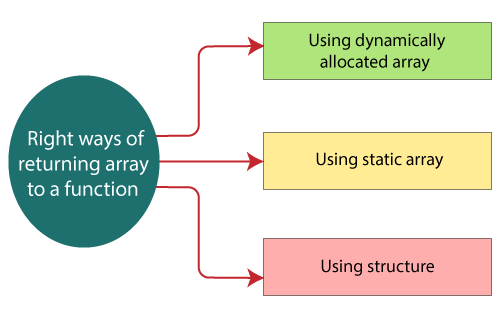Intersecting Triangles
Strategy
int counting(left, right)
if (left+1 == right)
return 0
mid = (left + right) / 2
cnt = counting(left, mid)
cnt += counting(mid,left)
r = mid
for l = left to mid
while (r<right && A[l]>A[r]) //l<r
r++
cnt += r-mid
return cnt
- Convert
Q, andRtomaxandmin - Sort
Palong withmax,min - Sort
maxandminat the same time with sorted P
Count inversions with C
// C program to Count
// Inversions in an array
// using Merge Sort
#include <stdio.h>
#include <stdlib.h>
int _mergeSort(int arr[], int temp[],
int left, int right);
int merge(int arr[], int temp[],
int left, int mid,
int right);
/* This function sorts the input array and returns the
number of inversions in the array */
int mergeSort(int arr[], int array_size)
{
int* temp = (int*)malloc(sizeof(int) * array_size);
return _mergeSort(arr, temp, 0,
array_size - 1);
}
/* An auxiliary recursive function
that sorts the input
array and returns the number
of inversions in the array.
*/
int _mergeSort(int arr[], int temp[], int left, int right)
{
int mid, inv_count = 0;
if (right > left)
{
/* Divide the array into two parts and call
_mergeSortAndCountInv() for each of the parts */
mid = (right + left) / 2;
/* Inversion count will be the sum of inversions in
left-part, right-part and number of inversions in
merging */
inv_count += _mergeSort(arr, temp, left, mid);
inv_count += _mergeSort(arr, temp, mid + 1, right);
/*Merge the two parts*/
inv_count += merge(arr, temp, left, mid + 1, right);
}
return inv_count;
}
/* This funt merges two sorted
arrays and returns inversion
count in the arrays.*/
int merge(int arr[], int temp[], int left, int mid,
int right)
{
int i, j, k;
int inv_count = 0;
i = left; /* i is index for left subarray*/
j = mid; /* j is index for right subarray*/
k = left; /* k is index for resultant merged subarray*/
while ((i <= mid - 1) && (j <= right)) {
if (arr[i] <= arr[j]) {
temp[k++] = arr[i++];
}
else
{
temp[k++] = arr[j++];
/*this is tricky -- see above
* explanation/diagram for merge()*/
inv_count = inv_count + (mid - i);
}
}
/* Copy the remaining elements of left subarray
(if there are any) to temp*/
while (i <= mid - 1)
temp[k++] = arr[i++];
/* Copy the remaining elements of right subarray
(if there are any) to temp*/
while (j <= right)
temp[k++] = arr[j++];
/*Copy back the merged elements to original array*/
for (i = left; i <= right; i++)
arr[i] = temp[i];
return inv_count;
}
/* Driver code*/
int main(int argv, char** args)
{
int arr[] = { 1, 20, 6, 4, 5 };
printf(" Number of inversions are %d \n",
mergeSort(arr, 5));
getchar();
return 0;
}
Ref: https://www.geeksforgeeks.org/counting-inversions/
How to know two triangles have intersection(s)?
Let points on two distinct triangles be (P,Q,R) and ‘(P’,Q',R')`.
- No intersection happens when
P> ‘P’andmin(Q',R') > max(Q,R)`
- Intersection happens: Otherwise
Range of <tt>Int</tt>
Int: 4 bytes- 32 bit (1 byte = 8 bit)
- Range: -2^31 ~ 2^31-1
- Belongs to the range
Ref: https://www.tutorialspoint.com/cprogramming/c_data_types.htm
Hints
排序
- 排序
P - 左邊
max - 右邊
min
逆序述對
- 定義
A[i] > A[j]i<j
- 計算逆序數對

Ref:
- https://www.csie.ntu.edu.tw/~sprout/algo2016/ppt_pdf/divide_and_conquer.pdf
- https://medium.com/@ssbothwell/counting-inversions-with-merge-sort-4d9910dc95f0
Merge sort
#include <stdio.h>
#include <stdlib.h>
// Merge two subarrays of A[].
// First subarray is arr[head..mid]
// Second subarray is arr[mid+1..tail]
void merge(int arr[], int head, int mid, int tail){
int lenA = mid - head + 1;
int lenB = tail - (mid + 1) + 1;
int A[lenA];
int B[lenB];
//Copy data to temp arrays A[] and B[]
int i, j, k;
for(i = 0; i < lenA; i++){
A[i] = arr[head + i];
}
for(j = 0; j < lenB; j++){
B[j] = arr[mid + 1 + j];
}
// Merge two temp arrays back into arr[head..tail]
i = 0;
j = 0;
k = head;
//while array A and B haven't finished scanning
while(i < lenA && j < lenB){
if(A[i] < B[j]){
arr[k] = A[i];
i++;
}
else{
arr[k] = B[j];
j++;
}
k++;
}
//Copy the remaing elements into arr[], if A[] haven't finished scanning
while(i < lenA){
arr[k] = A[i];
i++;
k++;
}
//Copy the remaing elements into arr[], if B[] haven't finished scanning
while(j < lenB){
arr[k] = B[j];
j++;
k++;
}
}
void merge_sort(int arr[], int head, int tail){
if(head < tail){
int mid = (head + tail) / 2;
merge_sort(arr, head, mid);
merge_sort(arr, mid+1, tail);
merge(arr, head, mid, tail);
}
}
int main(){
int count, i;
scanf("%d", &count);
int list[count];
printf("Numbers to be sorted: ");
for(i = 0; i<count; i++){
scanf("%d", &list[i]);
printf("%d ", list[i]);
}
printf("\n");
merge_sort(list, 0, count-1);
printf("Numbers Sorted: ");
for(i = 0; i<count; i++){
printf("%d ", list[i]);
}
return 0;
}
Ref:
Merge sort in CLRS
Merge Sort
MERGE_SORT(A,p,r)
if p<r
q = round( (p+r)/2 )
MERGE-SORT(A,p,q)
MERGE-SORT(A,q+1, r)
MERGE(A,p,q,r)
Merge
MERGE(A,p,q,r)
n1 = q - p + 1 // length of sub-array 1 [str, end]
n2 = r - q // (str, end]
let L[1..n1+1] and R[1..n2+1] be new arrays
for i = 1 to n1
L[i] = A[p+i-1]
for j = 1 to n2
R[j] = A[q+j]
L[n1+1] = inf
R[n2+1] = inf
i = 1
j = 1
for k = p to r
if L[i] <= R[j]
A[k] = L[i]
i = i+1
else
A[k] = R[j]
j = j + 1
Draft

Returning array in C

Ref: https://www.javatpoint.com/return-an-array-in-c
Copy array with <tt>memcpy</tt>
https://stackoverflow.com/questions/2681061/memcpy-what-should-the-value-of-the-size-parameter-be


